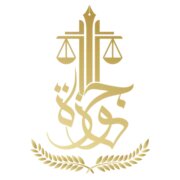Best Energy Regulatory Law Lawyers in Qatar
Share your needs with us, get contacted by law firms.
Free. Takes 2 min.
Or refine your search by selecting a city:
List of the best lawyers in Qatar
About Energy Regulatory Law in Qatar
Energy Regulatory Law in Qatar governs the production, distribution, and consumption of energy resources within the country. Qatar is known for its substantial reserves of oil and natural gas, making the energy sector a vital part of its economy. The regulatory framework covers a range of activities including exploration, extraction, processing, transportation, and sale of energy products. Both domestic and international companies operate under a legal structure set by various governmental authorities to ensure efficient, fair, and sustainable use of Qatar’s energy resources.
Why You May Need a Lawyer
There are several common situations where legal advice or representation in the field of Energy Regulatory Law is essential. These include:
- Drafting or negotiating energy contracts and joint venture agreements
- Securing the necessary licenses and permits for energy projects
- Compliance with environmental and safety regulations related to energy activities
- Dispute resolution in cases of contract breaches or regulatory infractions
- Understanding changes to regulations or policies affecting energy operations
- Mergers, acquisitions, or divestments in the energy sector
- Protection of intellectual property associated with energy technologies
- Cross-border transactions or foreign investment in the energy industry
- Advice on taxation and customs duties related to energy exports or imports
A lawyer specializing in Energy Regulatory Law can help navigate the complex legal requirements, ensure compliance, and protect your business interests.
Local Laws Overview
Qatar’s energy sector is regulated by several key laws, regulations, and entities. Some of the most relevant legal aspects include:
- State Ownership of Resources: Under Qatar’s constitution and laws, the state retains ownership and control over oil, gas, and other natural resources. Private and foreign entities typically operate through agreements with government agencies or state-owned enterprises.
- Qatar Petroleum (QP): Formerly a regulatory authority, QP is now a state-owned corporation overseeing most energy operations in Qatar. Licensing and resource management agreements are commonly executed through QP.
- Licensing and Concessions: All companies engaging in exploration, extraction, or sale of hydrocarbons in Qatar must obtain legal concessions or licenses. These set out specific environmental, operational, and safety obligations.
- Environmental Regulations: Energy projects must comply with stringent environmental laws managed by the Ministry of Environment and Climate Change. Environmental impact assessments are mandatory for new projects.
- Energy Efficiency and Sustainability: Qatar is evolving its regulatory framework to promote renewable energy and energy efficiency, in line with its National Vision 2030.
- Foreign Participation: Foreign investors are permitted in the energy sector, but are generally required to enter into partnerships with local or state-owned entities.
- Dispute Resolution: Many energy contracts specify dispute resolution through arbitration or specialized courts, both locally and internationally.
Frequently Asked Questions
What is the main regulatory authority for energy in Qatar?
The main authority is Qatar Petroleum, which oversees hydrocarbon operations, and the Ministry of Environment and Climate Change, which governs environmental compliance within the energy sector.
Can foreign companies operate energy projects in Qatar?
Yes, but they usually need to partner with local or state entities and comply with Qatar’s regulatory framework, including obtaining relevant licenses or agreements.
What laws govern oil and gas extraction in Qatar?
The Hydrocarbons Law and related regulations govern extraction, exploration, and sale of oil and natural gas. These laws establish the rights and requirements for operating in the sector.
Do energy projects in Qatar require environmental approval?
Yes, environmental impact assessments and approvals from the Ministry of Environment and Climate Change are required before commencing most energy projects.
How are disputes in the energy sector resolved?
Disputes are often resolved through arbitration, either in Qatar or through international institutions. Some issues may also be handled by Qatari courts or specialized tribunals.
What are common risks for investors in Qatar’s energy sector?
Risks include changes in regulations, compliance challenges, environmental liabilities, and complexities arising from joint ventures or cross-border transactions.
Are renewable energy projects subject to the same regulations?
Many legal requirements apply similarly to renewable projects, but there is also a developing regulatory framework specifically to promote renewables and energy efficiency in Qatar.
Who owns energy resources found in Qatar?
All oil, gas, and related resources are owned by the State of Qatar, even if development is undertaken by private or foreign companies under agreements.
Is energy export regulated?
Yes, energy exports are closely managed and regulated by Qatari authorities, with licensing and customs compliance requirements for all exporters.
What happens if a company breaches energy regulations?
Penalties can range from fines and suspension of activities to termination of contracts or licenses. Severe breaches may result in criminal liability for individuals or companies.
Additional Resources
The following organizations and bodies can provide valuable information or support related to Energy Regulatory Law in Qatar:
- Qatar Petroleum (QP)
- Ministry of Environment and Climate Change
- Qatar Chamber of Commerce and Industry
- Qatar Energy Regulatory Authority
- Qatar Financial Centre Regulatory Authority
- Qatari law firms specializing in energy and infrastructure projects
Next Steps
If you require legal advice or assistance in Energy Regulatory Law in Qatar, it is important to consult with a specialized lawyer or law firm with experience in the sector. Here are recommended steps:
- Identify the specific legal issues or questions relevant to your situation
- Gather any contracts, licenses, or official correspondence related to your case
- Contact a reputable Qatari law firm or legal advisor with expertise in energy law
- Prepare a list of questions and objectives to maximize the efficiency of your consultation
- Keep up to date with any regulatory changes that may impact your activities, especially if you are investing or operating in the sector
Taking these steps will help you protect your interests and ensure compliance with the complex regulatory environment governing Qatar’s energy sector.
Lawzana helps you find the best lawyers and law firms in Qatar through a curated and pre-screened list of qualified legal professionals. Our platform offers rankings and detailed profiles of attorneys and law firms, allowing you to compare based on practice areas, including Energy Regulatory Law, experience, and client feedback.
Each profile includes a description of the firm's areas of practice, client reviews, team members and partners, year of establishment, spoken languages, office locations, contact information, social media presence, and any published articles or resources. Most firms on our platform speak English and are experienced in both local and international legal matters.
Get a quote from top-rated law firms in Qatar — quickly, securely, and without unnecessary hassle.
Disclaimer:
The information provided on this page is for general informational purposes only and does not constitute legal advice. While we strive to ensure the accuracy and relevance of the content, legal information may change over time, and interpretations of the law can vary. You should always consult with a qualified legal professional for advice specific to your situation.
We disclaim all liability for actions taken or not taken based on the content of this page. If you believe any information is incorrect or outdated, please contact us, and we will review and update it where appropriate.
Browse energy regulatory law law firms by city in Qatar
Refine your search by selecting a city.

















